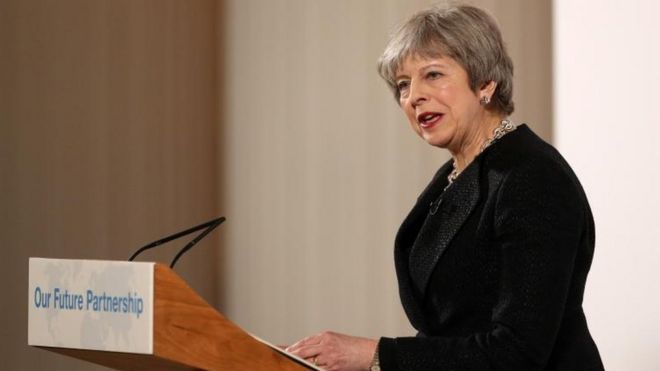
Theresa May's speech was another key milestone in the Brexit process and for once business leaders did not leave totally disappointed.
What business will most appreciate is that this was not a complacent speech.
It acknowledged the scale and complexity of the task in hand and made some pragmatic concessions to the realities of trade with the EU.
Most of those concessions will please the business community, but some may not satisfy members of her party.
Perhaps the most eye-catching passage for business was the prime minister's indication that the UK would be prepared to pay to remain a member of some European regulatory agencies, such as the European Medicines Agency or the European Aviation Safety Authority.
As the regulations change, the UK parliament could choose to enact an identical law - or not - but failing to do so would be in the knowledge that it might affect our membership of the agency.
So parliament remains sovereign but in practice would probably not use that sovereignty in case we got booted out of the agency. That will sound suspiciously like rule taking to some Brexit firebrands.
She also accepted that on goods regulations, UK standards would have to be at least as high as the EU's - so, no bonfire of regulation that frankly no one in the business world wanted anyway.
On services, which accounts for about three quarters of the UK economy, she conceded that services had never been included in any meaningful way in previous deals and this accepted this part would be tough.
'New partnership'
The tone was strongest on financial services. She said that London was the most important financial centre in the world and the UK taxpayers take the risk of being its home - so the UK could never be a rule taker.
She called for a collaborative, objective framework that was mutually agreed and permanent. That would mean "equivalence" (which the EU already grants to some third countries) is probably not good enough as it can be terminated at short notice. She said Phillip Hammond would expand upon the UK's ideas on this shortly.
On customs, it seems that a new "partnership" with the EU has become the favourite option. This would require the UK to enforce both its own customs arrangements and act as agent for the EU when goods arrive in the UK bound for the EU.
This option sounds mindbogglingly complex and business will need to see much more detail to be convinced that the government has a solid answer to a very important question for them - and the future of the border on island of Ireland.
As Adam Marshall of the BCC said: "The prime minister was clearer and more realistic than ever before on the political choices and economic trade-offs ahead."
The financial services lobby group, TheCityUK, praised her for making "a detailed and practical proposition and it should put to rest any suggestion that the UK has not made its intentions and ambitions clear".
Was it cherry picking? To an extent - but she had a neat if simplistic answer to this. Every trade deal involves a bit of cherry picking and the EU does it too in its differing approaches to its deals with South Korea and Canada.
by Simon Jack
No comments:
Post a Comment